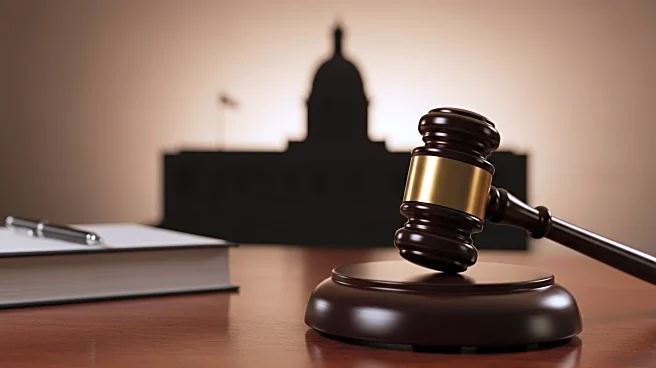What's Happening?
Governor Spencer Cox of Utah is facing legislative pressure regarding the appointment of the state's Supreme Court Chief Justice. A new version of a bill, which Governor Cox previously vetoed, is set to be considered in a special legislative session. This bill would compel the governor to appoint the Chief Justice of the Utah Supreme Court, a power he has expressed reluctance to wield. The legislative move comes amid broader discussions about the separation of powers and the role of the executive branch in judicial appointments. The situation highlights ongoing tensions between the governor and the state legislature over judicial independence and executive authority.
Why It's Important?
The potential shift in the appointment process for Utah's Supreme Court Chief Justice could have significant implications for the state's judicial system. If the bill passes, it would increase the governor's influence over the judiciary, potentially affecting the balance of power between the branches of government. This development is part of a larger national conversation about the role of politics in judicial appointments and the independence of the judiciary. Stakeholders, including legal experts and political analysts, are closely watching the situation, as it could set a precedent for similar legislative actions in other states.
What's Next?
The special legislative session will determine the fate of the bill, with lawmakers expected to debate the merits and potential consequences of granting the governor this appointment power. If the bill is passed, Governor Cox will need to navigate the political and public response to his new role in judicial appointments. The decision could prompt reactions from various stakeholders, including legal advocacy groups and political opponents, who may challenge the move on constitutional grounds.
Beyond the Headlines
The debate over the bill raises questions about the ethical implications of political influence in judicial appointments. Critics argue that such influence could undermine the perceived impartiality of the judiciary, while supporters claim it ensures accountability. The outcome of this legislative session could influence future discussions on judicial reform and the separation of powers in state governments.









